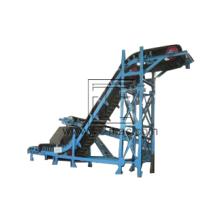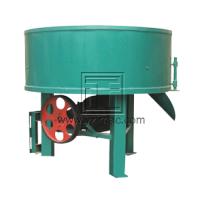Compost making large scale
Compost making on a large scale refers to the process of managing and producing compost in significant quantities.
Efficient Organic Waste Management:
Large-scale composting enables efficient management of organic waste materials. It provides a systematic approach to handling significant volumes of waste, including food scraps, yard trimmings, agricultural residues, and other organic materials. By implementing large-scale composting systems, operators can effectively process and transform these waste materials into valuable compost.
Diversion of Organic Waste from Landfills:
Composting on a large scale helps divert organic waste from landfills. Instead of sending organic waste to landfill sites where it contributes to methane gas emissions and environmental pollution, large-scale composting provides a sustainable alternative. It reduces the reliance on landfilling and supports the circular economy by recycling organic waste into nutrient-rich compost.
Nutrient Recycling and Soil Enrichment:
Large-scale composting operations produce significant quantities of nutrient-rich compost. This compost can be used to enrich soils and enhance their fertility. By recycling organic waste into compost, large-scale composting supports sustainable agriculture practices by improving soil structure, water-holding capacity, and nutrient content. The application of compost helps reduce the need for synthetic fertilizers, leading to more sustainable and environmentally friendly farming methods.
Large Composting Infrastructure:
Large-scale composting operations often involve the establishment of specialized infrastructure such as composting pads, windrow systems, or in-vessel composting facilities. These infrastructures are designed to handle substantial volumes of organic waste and provide optimal conditions for the composting process. Large composting infrastructure ensures efficient management, proper aeration, and effective decomposition of the organic materials.
Regulatory Compliance and Environmental Standards:
Large-scale composting operations must adhere to regulatory compliance and meet environmental standards. These regulations ensure that composting facilities operate in an environmentally responsible manner, addressing concerns such as odor control, leachate management, and air quality. Compliance with regulations helps maintain operational integrity, minimizes environmental impacts, and ensures the production of high-quality compost.
Collaboration and Partnerships:
Large-scale composting operations often involve collaboration and partnerships with various stakeholders. This includes waste generators, such as municipalities and food processing industries, as well as farmers, landscapers, and garden centers who can benefit from the nutrient-rich compost. Collaborative efforts allow for the effective management and utilization of organic waste, creating a closed-loop system that benefits multiple sectors.
Contribution to Circular Economy:
Composting on a large scale supports the principles of the circular economy. It promotes the sustainable use of resources by recycling organic waste into a valuable product, reducing dependence on non-renewable resources. Large-scale composting operations contribute to a more circular and regenerative waste management system, aligning with global sustainability goals.
In conclusion, compost making on a large scale offers efficient organic waste management, diversion from landfills, nutrient recycling, and soil enrichment. It requires the establishment of specialized infrastructure and adherence to regulatory compliance. Large-scale composting supports the principles of the circular economy and fosters collaboration among various stakeholders. By embracing large-scale composting, we can transform organic waste into a valuable resource while promoting sustainable and environmentally friendly practices.







